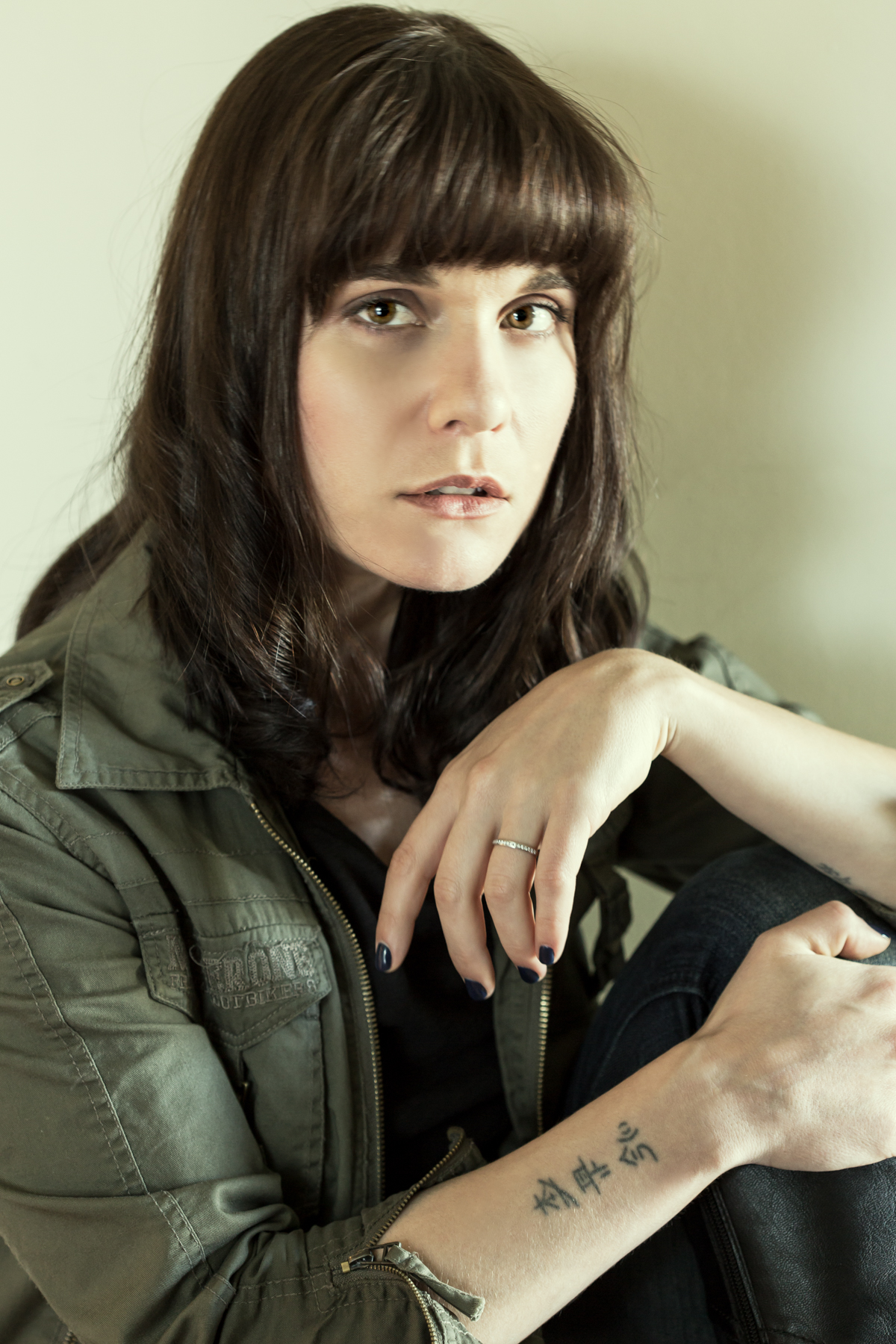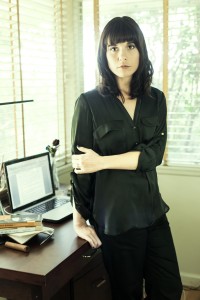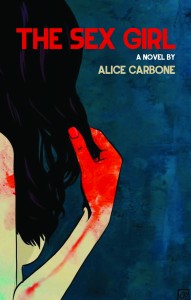I first met Alice Carbone when we connected about sex and addiction. I spent a lot of my life being addicted and having sex. Then trying to not be addicted and not have sex. We soon found out that we were cut from the same cloth, in many ways. She told me she was working on a novel. But then, everyone tells me they’re working on a novel. Approximately 0.1% of the people who tell me they’re working on a novel actually write the novel and get it published. But that’s the kind of person Alice is. Not only did she tell me she was going to write a novel, she wrote the novel and got published by a fantastic publisher. Now that her book is out, I thought I’d pick her brain to see how she’s doing with books and sex and addiction.
To read this interview on the Huffington Post, click here.
David Henry Sterry: This is your first novel. How exciting was it when the box of books showed up?
Alice Carbone: It’s funny that you ask that, because due to uncontrollable circumstances, I still haven’t received the ‘famous box.’ But I did hold the actual book in my hands during the book launch at Book Soup in Los Angeles a few weeks ago. In fact, during the event I talked about learning how to accept life obstacles as part of our path, and I guess the box is one such obstacle. I can’t wait to open it.
[Aside from interviewer. This came in a couple of days ago from Alice: “I just wanted to tell you that I have just received THE BOX and I am beyond excited. I cried. It finally feels real and makes me feel very proud and hopeful for the future — something that doesn’t necessarily come easy, natural to me. There is a book on my lap as I’m writing this, and a smile on my face.”]
DHS: How did you go about getting your first novel published?
AC: After an endless number of rejections and almost giving up, my publisher, Tyson Cornell at Rare Bird Books, took the time to read it and shortly after emailed me back; he wanted to publish The Sex Girl. And the most interesting part of the publishing process was working with an editor for the first time. I looked forward to it for a long time, to learning more about language structure and writing; English not being my native language. My editor, Julia Callahan, and I had a very productive dialogue that helped shape the novel.
DHS: I hate to ask you this, but did you draw a lot from your own life when writing about difficult subjects like sex and addiction?
AC: I understand why people ask. At the end of the book, I wrote a personal message to my readers where I say that I have myself suffered from alcoholism, depression, addiction and eating disorders; as a consequence, my sexual life wasn’t idyllic. What a portrait, huh? However, the story is fictional; the main character, K, is fictional. What is not fictional are the feelings in the book. They are very personal and — hopefully — at once universal. I always felt voiceless growing up. So with this novel, I took my voice back and tried — at the same time — to give a voice to all those women I met along the way, women who have not been blessed, like me, with recovery, tools and some serenity. It was a healing process, too. I am very different from the Alice who wrote it five years ago.
DHS: Your book was the number one novel at one of Los Angeles’s most influential bookstores, Book Soup. How did you go about building community, arriving as you did a few years ago in such a strange place from another country, another world?
AC: When I moved to Los Angeles in 2010, I started a blog called WonderlandMag. The publication then became Coffee with Alice, but the purpose of what I was doing has never changed, which is to communicate with my readers with honesty. I’ve never been afraid to show my vulnerability when it came to the written word. At times I wish I were, because looking back to the essays I wrote over the years, I often feel somewhat naked.
Now, to give you an example and possibly explain why The Sex Girl jumped to number one at Book Soup, during the celebratory afternoon I shared with the audience about my recent, severe depression, with humor and yet candid truth. I also told them what I was doing to heal and go back to regular life. I discussed the many obstacles this book has encountered and admitted that seeing obstacles in life is something I unconsciously (or consciously) tend to do. I wrote The Sex Girl in a language, English, that isn’t my native one. But instead of being proud and enjoying the journey of learning, I felt stupid and dragged my self-imposed burden with shame. Some readers have identified with my story since day one; others have grown to appreciate my slow improvement with time. I believe that the key is always speaking with your heart, whether you are writing fiction, interviewing an artist or making music.
The heart never lies; people pick up on truth more than anything else. It may not pay off right away, but it never goes unrewarded.
DHS: How did you learn to become a writer?
AC: Ah! I am still learning and always will be. But I always lived in my own world, in my own head, since I was a kid and did not particularly like the world around me. I used to tell impossible stories. I tried to be a singer; I wrote my own songs, and yet my singing voice isn’t at all extraordinary. But writing has always been healing for me, whether in the form of poetry, short stories or lyrics for a song. The world of the novel opened up a new, fantastic universe of possibilities.
DHS: What are your some of your favorite books and authors, and why?
AC: Joan Didion has been a teacher from a distance since I moved to the United States five years ago. There is something unique about the way she weighs the sentence, the number of words, the paragraph. Her rhythm is what I am after, something I try to learn from every day. And then Norman Mailer, Don DeLillo, Raymond Chandler, the Italian Italo Svevo — The Zeno’s Conscience is one of my favorite books, Cheryl Strayed… I am currently reading Chanel Bonfire by Wendy Lawless, simply heartbreaking, utterly moving. But the list could continue almost ad infinitum…
DHS: You’ve interviewed tons of writers for Coffee with Alice. How has this affected the way you look at writing, books and life?
AC: It has taught me about patience and humility. Every great artist that I have had the honor of interviewing for my podcast, from Janet Fitch to Jerry Stahl and Nayomi Munaweera or Royal Young, just to name a few, has taken me by the hand to show me their journey. You gave me a fantastic interview as well; it was a terrific hour of learning for me. By doing so you all gave me hope. Looking back, I realize that during the writing of The Sex Girl, at times, I aimed for the top of the mountain to such an extent that I forgot about the journey. I am trying to not make the same mistake again the second time around, now that I am writing my second novel.
DHS: How do you get such cool and interesting people to talk with you for your podcast?
AC: I ask the same question of myself! They were all kind and humble enough, from the very beginning of my career, to give me a chance. They liked my writing and believed in me. With time passing by, the podcast has gained more attention, and today I am considered more legit. For the many terrific music guests, I am lucky to have a husband, Benmont Tench, who’s a well-known keyboard player; I get to hang out with many talented artists on a daily basis. I am blessed. However, the rejections I get far outnumber the guests that appear on it. Coffee with Alice is about to go on a hiatus nonetheless; I have two more guests and then I will concentrate on just writing for a while.
DHS: What are some of the joys and difficulties of being a writer for you?
AC: What a terrific question this is! I find many difficulties, especially because my brain still goes through some kind of translation process and because my vocabulary is constantly expanding. Everything is difficult for me, in English. Having discipline is difficult for me. In fact, I try to wake every morning at 7:00 to write, to build a routine. But curiously enough, that’s also where the joy comes from — having a purpose and having written at the end of day — something that has a meaning for me, or that I know will, eventually.
What Joan Didion says in her essay “Why I Write,” “I write entirely to find out what I’m thinking, what I’m looking at, what I see and what it means. What I want and what I fear,” is something I can very much relate to; the more I write, the more I deepen my relationship with myself, people and this world. When I write I grow as a human being. I don’t know how this happens, but it’s fascinating, and it also helps me hold on during difficult times, when all I want to do is give up.
DHS: I hate to ask you this, but what advice you have for drug addicts? Immigrants? Interviewers? Writers?
AC: I don’t like to give advice, because I am still in the process of learning myself. But I would probably tell writers to never stop writing, that the job is difficult, sometimes frustrating, often painful, but if you are a writer it will be worth the journey. Addicts and alcoholics…there is another, beautiful life that I had no idea existed. The perfect life doesn’t exist, but the one I have today is the most beautiful I could have ever wished for. Seek recovery. Immigrants…Good luck, truly, with all my heart!
Alice Carbone Tench is an Italian-born author and journalist based in Los Angeles. Former translator and interpreter from Turin, she moved to Los Angeles in 2010. Her debut novel–The Sex Girl–is out now by Rare Bird Books. She also created the interview podcast Coffee with Alice that airs twice a month on iTunes. In 2014, she was a weekly contributor to Anna David’s recovery website After Party Chat. In October 2014, Alice Carbone was the subject of a documentary aired on the Italian network RAI with Moby and bestselling author Jerry Stahl. When nominating her for the Shorty Awards 2014, radio legend Phil Hendrie defined her literary voice as ‘Columbia’s… in love with America again.’ Alice is currently working on her second novel. She lives in Los Angeles with her husband, keyboard player Benmont Tench.You can follow her on Twitter, Instagram or Facebook.



